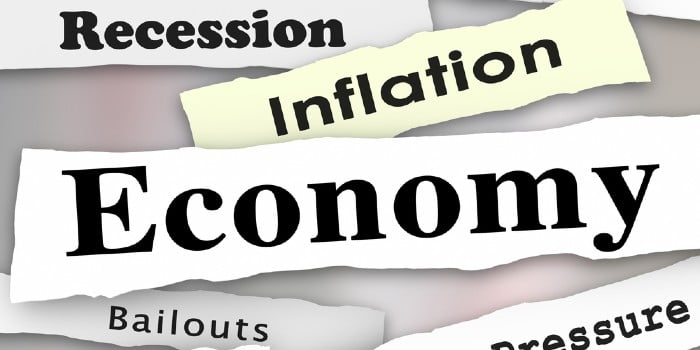23 November 2023 – Yesterday the Chancellor announced his Autumn Statement 2023, setting out the government’s fiscal plan for the year ahead.
When the King’s Speech earlier this month announced that the government is focussing on growing the economy in the coming year, many business leaders lamented the lack of detail.
With no clear indication how the government would achieve its plans to boost economic growth, many were pinning their hope on the autumn budget for more detailed measures.
And the Autumn Statement 2023 didn’t disappoint there, with Jermey Hunt introducing 110 different measures that are supposed to help the economy grow. But what impact will these measures have on small UK businesses?
Tax Cuts For Businesses In The Autumn Statement 2023
The biggest measure that Mr Hunt announced was major cuts to National Insurance (NI). It is estimated that approximately two million self-employed people in the UK will be impacted by these cuts.
Cuts were announced to three NI classifications, with the compulsory Class 2 NI contributions for the self-employed being abolished entirely from 6 April. This means that self-employed people will no longer have to pay the weekly flat rate of £3.45 if they have profits above £12,570.
Access to contributory benefits, including the state pension, will continue, despite the changes. This is also true for those with a profit between £6,725 and £12,570, even though they won’t have to pay any NI, thanks to a NI credit.
Any self-employed person with profits below £6,752 who currently pays Class 2 NI contributions voluntarily to get contributory benefits can continue to do so. Anyone else who wishes to pay Class 2 NI voluntarily to access these benefits can also continue to do so.
The rate for Class 2 National Insurance contributions will remain at £3.45 per week for voluntary payments. The planned rise to £3.70 from April 2024 will not go ahead now.
The rate for Class 4 NI for self-employed will be cut from 9% to 8% from 6 April 2024, for those with yearly profits between £12,570 and £50,270. For self-employed with profits above £50,270 the rate will be cut to 2%.
The Class 1 NI rate for employees will be cut from 12% to 10% for workers earning between £12,571 and £50,271. Unlike the self-employed, who have to wait until the next tax year, workers will be benefitting from this cut from 6 January 2024, so will see more money in their pockets sooner.
Workers who earn more than £50,271 won’t see a rate change, as it will stay at 2%. While all this is great news for employees and self-employed, the employer NI contributions won’t fall.
Employers will continue to pay 13.8% NI contribution for their workers, which means there is no cost reduction for small businesses with staff. At the same time, the National Living Wage will rise from £10.42 to £11.44 per hour from April. And it will now also apply to 21- and 22-year-olds.
This won’t be good news for businesses, as it means that their “people costs” will increase, making it difficult for them to afford to hire more staff, or even keep existing staff. Growing a small business in these circumstances is a real challenge.
The increase in National Living Wage is bound to be well received by workers across the country … However, for small businesses it’ll be yet another increase to overheads and present a tough balance for achieving growth alongside an increased payroll.
Mike Randall, CEO of Simply Asset Finance
Other Measures Impacting Small Businesses

The Chancellor also announced that the small business rate multiplier will be frozen again at 49.9% for the next tax year, while the standard multiplier will increase in line with September inflation figures to 54.6%.
With business rates going up, the retail, hospitality and leisure sector will be pleased to hear that their current relief of 75% will be extended for 2024-25. Eligible properties in this sector will continue to get support up to a cash cap of £110,000 per business.
Jeremy Hunt also announced in his Autumn Statement 2023 that “full expensing” will be made permanent. This allows businesses to deduct investments in certain equipment in full from their corporation tax bill. For any investments that aren’t eligible for the full deduction, businesses can get a 50% deduction in the first year.
The government will also introduce measures that will help to tackle the longstanding issue of late payments. Any business that bids for government contracts worth more than £5m will have to show that they pay their purchase invoices within an average of 55 days. This measure will come into effect in April 2024.
A year later, the average timeframe for payments will reduce to 45 days and then to 30 days in the years after that. Whether this will actually help to tackle late payments for small businesses, only time will tell.
There will also be changes to cash basis accounting from April 2024. It will become the default option, with accruals basis accounting becoming the opt-out option. Cash basis accounting will now be open to any business regardless of their turnover, with the threshold being removed.
The £500 limit on interest deductions in cash basis accounting will also be abolished from the next tax year. As will restrictions on using relief for losses.
The Chancellor has also pledged funding to attract investment in specific sectors, such as green energy and life sciences. AI innovation centres will also receive funding of £500m over the next years.
Our Opinion
While some of these measures will be welcomed by small businesses, like ours, all in all the Autumn Statement 2023 wasn’t really aimed at small businesses, despite what the Chancellor has said.
The fact that he cut NI taxes for workers and self-employed but not for employers means that small businesses with staff will continue to have high costs. Many small businesses had to increase wages to keep or attract staff due to a skills shortage that has plagued them for a while now.
The rise of the National Living Wage is great and the right thing to do, but at the same time, it means that small businesses with employees will see their staff costs increase. We don’t understand why there was no NI cut for employer contribution to counteract this increase in costs.
Small businesses had to overcome a myriad of obstacles in the past years, with Brexit, the pandemic, the mini-budget, inflation and sky-high energy costs. But somehow it doesn’t feel to us like this government is taking the blight of small businesses seriously. At least this statement doesn’t make it sound like it.
And even though tax cuts for workers and self-employed might increase their spending, it might not. Because according to the OBR forecast, households will be worse off in 2024/25 than before the pandemic.
Despite the NI tax cuts, overall taxes are higher than they were five years ago and inflation is also forecast to fall slowly. This is bad news for consumers and therefore for small businesses.
With a general election looming, in our opinion, this autumn budget was an attempt to gain voters and not to help small businesses or families to thrive.






